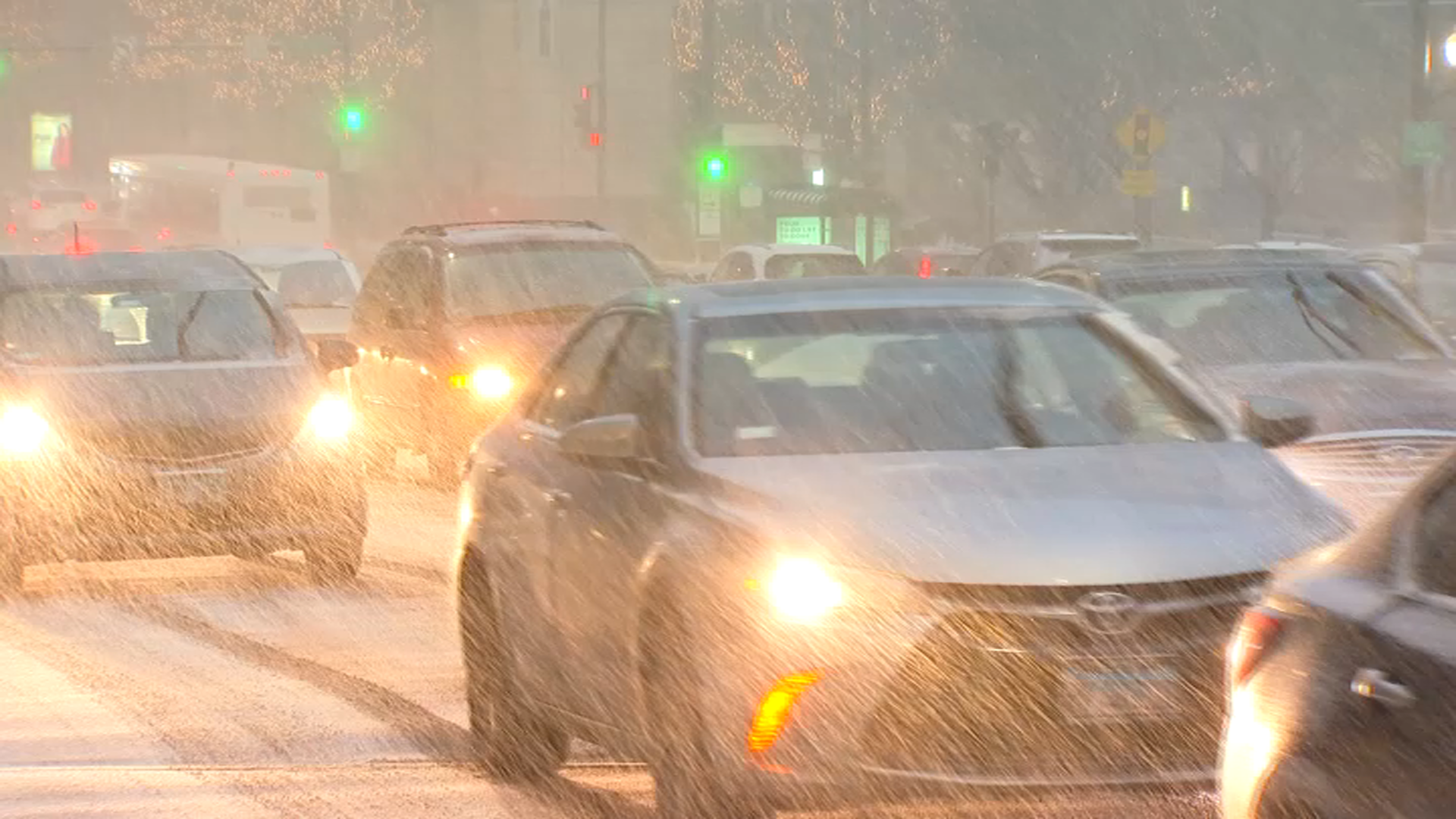Illinois and Chicago will both enter the next phase of their vaccination plan starting Monday, but will you be able to get the vaccine and how can you get it?
Phase 1b centers on residents age 65 years and older and "frontline essential workers," including first responders, education workers like teachers and support staff, childcare workers, grocery store employees, postal service workers, and more.
Illinois Gov. J.B. Pritzker last week announced plans for the state to move forward with the new phase, which includes roughly 3.2 million residents.
Beginning on Jan. 25, National Guard-led sites will be vaccinating residents eligible under Phase 1b, as well as sites at CVS, Jewel Osco and Walgreens, Pritzker said.
Chicago's top health official on Thursday said that there are four ways in which residents will be able to get vaccinated.
Chicago Department of Public Health Commissioner Dr. Allison Arwady said options include through a medical system or health care provider, through pharmacies, through a dedicated vaccination location like the points of dispensing sites, or through an employer.
While anyone who qualifies for the vaccine in the next phase is eligible to receive it, Chicago's Phase 1b aims to prioritize certain populations, Arwady said.
Local
"So right from the beginning I want people to hear that even as the phase opens up, most people will not be able to get vaccine right away that first week, even that second week, etc.," Arwady said, adding that she hopes to get most people in Phase 1b vaccinated through February and March.
For those receiving the vaccine through the city, there will be prioritization for those with the highest risk and to help "lower barriers," Arwady said.
"The way this will broadly roll out is that over the months of February and March, anybody who is in either 65 or these frontline essential workers is eligible for vaccine," Arwady said. "And so for example, if I am a grocery store worker or I am a teacher or I work in public transit, and I have an appointment with my doctor, for example, my doctor absolutely can give me vaccine at any point after Jan. 25, but we will also be working to bring vaccine to employers, to partner with employers to lower the barriers for these groups to get vaccine."
At the start of Phase 1B, the city plans to direct vaccine to correctional facilities and first responders.
"This has already been in the works because we've been vaccinating health care workers in those settings, whether those are the emergency medical service people on the ambulances, whether those are the people in the correctional settings who do health care," Arwady said. "So, the plans are in place and additionally more workers will come online. These are the settings where we've seen the most COVID cases, the most outbreaks. Every case that we prevent in these settings indirectly prevents many other cases, gets us past COVID, lowers the risk when people are going back to communities, really essential to be getting those workers vaccinated."
In February, depending on vaccine availability, the city will then shift to making vaccines available to employers of grocery store workers and manufacturing and factory settings.
After that, later in February, the city plans to direct vaccine to employers of daycare workers and educators.
"K through 12, early childhood educators, private parochial public - doesn't matter. All educators are going to be prioritized with planning a little bit later in February," Arwady said. "And that is well underway right now."
Arwady said it will take weeks to get each group vaccinated.
Heading into March, again depending on vaccine availability, vaccines expand to employers of public transit workers, agriculture workers, government workers, postal workers and more.
Though Illinois has not yet determined dates for future vaccine phases, Chicago officials said Phase 1c could come at the end of March and Phase 2, which includes all residents over the age of 16, could begin May 31.
Earlier this week, health care providers were allowed to begin offering any "leftover doses" of coronavirus vaccines to people over the age of 65 who live or work in Chicago in what was described as a modified phase of the city's vaccination plan.
Chicago officials say the best way to get updates on the vaccination rollout is through "Chi COVID Coach," a platform the Chicago Department of Public Health is using to monitor symptoms, giving information on testing in the city and help you get the latest details on the city's vaccination plan - including notification when you can register to get your vaccine.
You can sign up for Chi COVID Coach here.
As of Wednesday night, 572,389 vaccines coronavirus vaccines had been administered in Illinois, including 90,752 for long-term care facilities, according to the state's health department. On Wednesday, a total of 34,649 doses were administered.
Here's a look at who will be included in Phase 1b:
- Residents age 65 and over
- Frontline essential workers, which means "residents who carry a higher risk of COVID-19 exposure because of their work duties, often because they are unable to work from home, and/or they must work closely to others without being able to socially distance. This includes:
- First responders: Fire, law enforcement, 911 workers, security personnel, school officers
- Education: Teachers, principals, student support, student aids, day care worker
- Food and agriculture: Processing, plants, veterinary health, livestock services, animal care
- Manufacturing: Industrial production of good for distribution to retail, wholesale or other manufactures
- Corrections workers and inmates: Jail officers, juvenile facility staff, workers providing in-person support, inmates
- USPS workers
- Public transit workers: Flight crew, bus drivers, train conductors, taxi drivers, para-transit drivers, in-person support, ride sharing services
- Grocery store workers: Baggers, cashiers, stockers, pickup, customer service
- Shelters and day care staff: Homeless shelter, women’s shelter, adult day/drop-in program, sheltered workshop, psycho-social rehab



